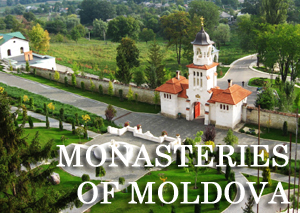
We have seen that Bessarabia is an almost purely agricultural region, with only a rudimentary industrial and commercial development; that when the Roumanians took it over from the Russians, they found it almost without means of communication, and with an uneducated and backward peasantry.
Since then, they have had to struggle with several years of drought, particularly acute in 1924 and 1925, and with a complete dislocation of Bessarabia’s ordinary markets; it was hoped that Poland would take the place of Russia as chief buyer of Bessarabian fruits and wines, but Poland (until recently) clapped high duties on them, as reprisal for the Roumanian high duty on Polish coal. Smuggling is of course a great evil; two million smuggled cigarettes and over seven tons of tobacco were seized in the first half of 1926. Money has been scarce and very dear, as everywhere in central and eastern Europe, and more so than in any other province of Roumania; it is calculated that while about 100,000,000 rubles were on loan in 1914-$50,000,000-today loans amount to only about a billion and a half of lei ($8,000,000) ; the rate of expropriation of the great estates was lower, under 700 lei a hectare, whereas the average in the Old Kingdom was 2000 lei; and during the period of exchange of rubles for lei (at a very favorable rate, as with crowns in Transylvania), the peasants had little confidence in the new regime, and at least a billion rubles is believed to have been kept back, and thus completely lost. The government’s, export duties on grain, now happily greatly reduced, interfered with the sale of what little wheat was available. Taxes, rents and prices of prime necessities kept going up; the government finally had to postpone collection of the burdensome commercial taxes, as the merchants found collections very bad. Add to this the progressive depreciation of the currency, the constant Soviet interference, the exactions of speculators lending to the peasants on their crops, and the intensity and bitterness of local politics, and the wonder is that Bessarabia has remained so loyal; there was not a single Roumanian among those found guilty in the Tatar-Bunar trial. The 1925 statistics showed a falling off in the planting of winter grain-561,967 hectares, as compared with 650,432 in the autumn of 1925; 471,923 hectares were in wheat, 78,749 in rye, 9828 in barley, and 2825 in rape-seed; but the winter of 1925-6 was excellent, with abundant snow; the spring planting of corn and wheat brought an abundant harvest, unfortunately partly ruined by a very rainy autumn (see p. 11).
I have failed to mention a feature of the Bessarabian situation which may seem insignificant, but which recently roused more feeling, perhaps, than any other act of the Roumanian government; I refer to the attempt to do away with the Old Style calendar. The Orthodox Church held to the Julian Calendar until the war; and observation of what is now going on in Bessarabia will help the student to visualize the struggles of 175, years ago in England and the American Colonies, when the Gregorian Calendar was being introduced with us. In Roumania itself, and in Soviet (and irreligious) Russia, the Gregorian Calendar is now in effect;a but the Orthodox Bessarabian peasant has no sympathy with such newfangled notions, and is shocked at the idea of changing the date of Easter and other church feasts. Devout religious observance is still a general Bessarabian characteristic. A recent Roumanian Finance Minister told me this anecdote. He had brought in a bill laying a uniform inheritance tax through the kingdom; a group of eight Bessarabian Senators at once called on him, to protest. Such an iniquitous tag had never been laid by Russia, they said; and one of them, in his excitement, called down the curses of the widows and orphans of Bessarabia upon the unhappy Minister. He explained to them that the tag is practically universal, was already being levied along four different lines in various parts of Roumania, and seemed low to the Transylvanians, who had had to pay a higher tag under the Hungarians; and that it fell very lightly on close relatives. The Senators were finally won over, and. penitently informed the Minister that they would go to church after the session and each light a candle, to counteract the curse they had invoked against him!
aIt was adopted by the Ukraine in December 1926.
At the meeting of the Orthodox Church Synod in Bucharest in December 1925, Archbishop Gurie, head of the Bessarabian clergy, outlined the efforts made, through pastoral letters, addresses by the priests to their congregations, canonical epistles, sermons, etc., to induce the faithful to adopt the New Style-efforts almost wholly without result. The Synod voted to have the reformed calendar applied to Bessarabia; but in an address to the Ministry of Public Instruction, asking that they call upon all school authorities in Bessarabia to help enlighten the people on the subject, the Synod notes’ that this matter “has taken the aspect of a politico-social question, in consequence of the intromission and propaganda of various agencies hostile to the unity of the Roumanian people, or of unscrupulous politicians.” It is no secret that the former Russian Archbishop of Bessarabia, Anastasius, is conducting this campaign from his headquarters in Jerusalem, with the aid of various anti-Roumanian elements.
On Feb. 4, 1926, at the meeting of the National Church Congress, a memorial was read in the name of the delegates of the archbishopric of Kishineff, the bishopric of Ismail and that of Baltz, recalling their request to have a gradual introduction of the new calendar, in view of the strong conservative feeling of the members of the Bessarabian Orthodox Church-a request the Synod did not see fit to grant. The news of the approaching change in the date of Easter, they continue, has been such a serious blow that they beg that for one more year the old system continue. In fact, the matter went still further. It was established that certain priests encouraged their parishioners to continue observing Old Style; and in April 1926, before the fall of the Liberals, several of these priests were arrested and brought before the military courts. Judging by the experience of our ancestors-it took Scotland 50 years to follow England’s example in adopting New Style-this will be a live question in Bessarabia for some time to come. The new Averescu Ministry, in April 1926, allowed everyone to celebrate Easter as he pleased, Old Style or New Style, pending an Ecumenical Council, to be held later in the year; the chief beneficiaries were the school-children, who had two sets of Easter holidays. Orders were again issued (in October 1926) for a uniform observance of New Style in Bessarabia in 1927.
Another unexpected difficulty the Roumanians had in the Bessarabian cities arose from their effort to introduce a new law providing rest-hours for employees, uniform all over the kingdom. This provided that stores should open at 8, and close from 12 to 1. A storm of protest burst forth all over Bessarabia. In Russia, they keep late hours, like the Spaniards; it is not customary for stores to open before 9 in Kishineff, and the best shopping hours are from 12 to 3, the dinner hour coming from 3: 30 to 5; then the stores are open again in the evening.
The Bessarabian Church has had other troubles since the Union. The Church still possessed valuable properties in Bessarabia; and in fear of possible secularization, it transferred these’ properties to a private corporation, the Union of the Orthodox Clergy of Bessarabia. But the new Roumanian Constitution grants the Church complete autonomy; and under pressure from the government, the Church has finally resumed ownership and responsibility, after a controversy which lasted several years.
The Church, like any other land-owner, had had its excess holdings expropriated. The Agrarian Law passed by the Provincial Diet aimed at giving every family a minimum of 6 hectares (15 acres) ; but the average worked out much less. According to the recent brochure of Dr. Agricola Cardash, Director General in the Ministry of Agriculture, “Aspects of the Bessarabian Agrarian Reform” (1926), some 4480 estates were expropriated, with an area of 1,844,539 hectares; of this, 1,098,045 hectares have been taken up by 357,016 farmers, living in 1739 villages. The average is therefore 3 hectares (71/2 acres). At the end of 1926, the total area is announced as 1,; 491,020 hectares; the average still remains low. That is considered too small, and of course has been pitifully inadequate during the drought conditions of the past few years; there has been much emigration, especially to Brazil; but the industrialization of the country, which will now soon take place, will provide a remedy. Roumania stands where Italy was forty or fifty years ago, on the verge of an intense industrial development; she has an abundance of raw materials and willing and faithful labor; now that she has regulated her American debt, she may expect foreign aid. Bessarabia will profit with the other provinces.
It is a pleasure to turn from this rather gloomy picture of economic and financial conditions, to the enormous improvement in the schools since the annexation. We have seen how widespread was illiteracy under the Imperial Russian regime, especially among the Roumanians, for whom, when the war broke out, there was not a single school in Bessarabia, although they formed the majority of the population. The teachers in the Bessarabian schools, mainly Russians, were supposed to have had a four-year normal school course; many, however, were graduates of the intermediate schools (between primary and lycee), who had taken pedagogical courses for two or three years. When the Roumanians took over the province, many of these teachers went back to their homes in Russia; but the Roumanians, who were short of teachers even in the Old Kingdom and Transylvania, at once employed all that were available, assigning them the salary due them according to service, just as in Roumania. They even took in teachers without full preparation, from church, village and private schools, nor did they insist on their taking the oath; many did not know Roumanian; and it was years before they were required to pass an examination in elementary Roumanian, just as in Transylvania. The first school census, of 1920-21, showed a total of 1747 schools, of which 1233 were Roumanian, 200 Ukrainian, 120 Russian, 78 Bulgarian, 73 German, 38 Jewish, 3 Polish; of the 2746 teachers, 854 belonged to the minority races. The number of children between 7 and 13 was 398,695, of whom 136,172 (34.2%) were in school. By 1923.24, the number of schools had increased to 2041, with 3927 teachers; and 203,627 children, out of a total of 441,958 (46%) were in school. The Roumanians show the same easy-going tolerance of minority languages in Bessarabia (see Russian testimony on p. 219 that has surprised me so many times in Transylvania, where there are actually today more Hungarian public schools, under the Roumanians, than there were when the country was under the Crown of St. Stephen. Indeed, on Nov. 12, 1926, the City Council of Satu Mare (Szatmar) voted to return to Hungarian for its deliberations I In 1925, I bought in a Kishineff bookstore copies of a Russian geography and a Russian reader in use in the Russian schools maintained by the Roumanians ; and I find in the Bucharest newspapers of 1926 repeated complaints that Russian is still used in church services in Bessarabia, even in Kishineff itself.
In Larga, e. g., a town of 5000 Roumanians near Lipcani (Hotin), formal complaint was made in August 1926 that the local priest still uses only Russian, though his flock do not understand it; and the special correspondent of the Bucharest Universul, in that same month, notes that at Tighina (Bender) neither his station porter nor the coachman nor a policeman of whom he asked his way, spoke Roumanian. Every traveler in Transylvania notices the same patience; indeed, the opposition charges that over 3000 Roumanian government employees iii Transylvania (former Hungarians) not merely do not yet understand Roumanian, but have not even taken the oath of allegiance. Russian telegrams are accepted for transmission, if written in Latin letters; and in February 1926, it was officially decided by the Roumanian Court of Appeals that commercial documents in Russian were perfectly legal. Of the other nationalities, the Germans and the Bulgarians are especially loyal to the new regime.
Side by side with the schools are functioning other educational agencies. Everywhere one finds “cultural clubs”; in the village of Volontirovca, I was shown the local headquarters, with its little library and museum; and in the larger towns more pretentious organizations-Free Universities or Popular Universities (i. e., University Extension), “Case Culturale” (Culture Clubs), and the like. In Soroca, e. g., the “Popular Atheneum” gives a musical or educational program every Sunday, and a public library has been opened,, as in numerous other towns. A similar “Atheneum” and library are in operation in Orhei. Much aid is extended by the educational societies of the other provinces, and the government encourages excursions of professors and students from the Old Kingdom and Transylvania into Bessarabia. In April 1926, e. g., representatives of the student organization of Bucharest, “Curentul Studentzesc la Sate” (Student Movement in the Villages), under Prof. Shtefanescu of the University of Cluj (Klausenburg), visited the town of Comrat, a center with 17,000 people, largely Bulgarian, about 50 miles from Kishineff, and were entertained by the local students; some years ago, this organization had established two public libraries in Comrat; up to date it has established in Roumania 724 such libraries, with 146,745 volumes. It is affecting to see the devotion and enthusiasm with which such work is being carried on in Bessarabia-work that makes one hope that the Cultural Loan Roumania has been trying to get from the League of Nations, may be granted; and if, in the midst of economic and financial distress and political disgust, Bessarabia is nevertheless loyal to Roumania, the reason is to be found primarily in the delight of the Bessarabian peasant at these new educational facilities for himself and his children.
Perhaps nothing can illustrate the change in Bessarabia more strikingly than the will of Basil (Vasile) Stroescu, the Moldavian patriot, President of the Bessarabian Diet, who died in the spring of 1926. This will, a holographic document in Russian, with the signatures of two Russian witnesses, was dated in Paris in March 1918. It begins: ” In the name of the Father, the Son and of the Holy Ghost, Amen. I, the noble, Vasile Vasilievitch Stroescu, of the Province of Bessarabia, born, etc., being of sound mind and memory unimpaired, have thought best to make the following disposal, etc. ” He then enumerates his various properties, in Trinca, Badragi, Zabriceni, Drutza, Stangaceni and still others, in the counties of Hotin and Baltz, with a total area of about 8000 hectares (20,000 acres)-all now expropriated, of course, except for a few hundred acres. Then comes the list of his bank accounts, the chief being some 850,000 French francs in a Paris bank, and 150,000 rubles in Odessa-the latter, of course, completely blotted out, and the former only a shadow of its earlier value. All this property Stroescu left to the Provincial Zemstvo of Bessarabia (now non-existent) for the establishment of village schools with obligatory instruction in Roumanian (now provided by the state). In case the Zemstvo could not do this, all his property was to go to the Roumanian State; I have mentioned his earlier generosity to this cause of Roumanian schools in Transylvania. Furthermore, either the Zemstvo or the Roumanian State was to pay certain annuities from these funds to his sister and certain dependents; and the executor, Ioan G. Pelivan, was to provide from the Russian funds for two churches, in the villages of Trinca and Zabriceni.
Such a document, only ten years old, bridges an abyss. It breathes the comfortable old Russian patriarchal atmosphere, of a land-holding aristocracy, of higher rights and privileges than the rest of mankind. Its execution falls within a period of militant equalization, as radical and almost as uncomfortable as the French Revolution. Nature chose to make this period particularly hard for Bessarabia; nor has man’s perversity and incompetency failed to complicate matters. As is remarked by the veteran observer Stephen Graham (p. 175), in 1924: “It may frankly be said that England herself could not govern a place like Bessarabia.” Yet Stroescu lived to see triumphant the principle for which he had fought all his life-schools for the people, in Bessarabia and Transylvania, in their own language-and that is Bessarabia’s chief hope for the future.
http://www.documentar-ortodox.blogspot.com/
 Memorial house of romanian elder Sofian Boghiu Consecrated in his native Village
Memorial house of romanian elder Sofian Boghiu Consecrated in his native Village  On the 14th Sunday after Pentecost, His Eminence Metropolitan Vladimir celebrated the Divine Liturgy in the St. Nicolas Monastery, Dobrusa village, Soldanesti region
On the 14th Sunday after Pentecost, His Eminence Metropolitan Vladimir celebrated the Divine Liturgy in the St. Nicolas Monastery, Dobrusa village, Soldanesti region  Inauguration of the volume of articles presented at the National Scientific Conference “The Orthodox Church and the State: Faith and Knowledge”
Inauguration of the volume of articles presented at the National Scientific Conference “The Orthodox Church and the State: Faith and Knowledge”  The 12th Sunday after Pentecost – kindness in God changes the world we live in
The 12th Sunday after Pentecost – kindness in God changes the world we live in  The 11th Sunday after Pentecost – loving our God and our neighbor
The 11th Sunday after Pentecost – loving our God and our neighbor  The Transfiguration of the Lord, celebrated in the Nativity of the Lord Cathedral in Chisinau
The Transfiguration of the Lord, celebrated in the Nativity of the Lord Cathedral in Chisinau  His Eminence Metropolitan Vladimir celebrates 65th anniversary
His Eminence Metropolitan Vladimir celebrates 65th anniversary  Divine Service at the St. Theodore of Tyre Monastery (Ciuflea) in Chisinau, and congratulation of Archimandrite Nicolae (Rosca), the Monastery’s confessor-administrator, on the 50th anniversary.
Divine Service at the St. Theodore of Tyre Monastery (Ciuflea) in Chisinau, and congratulation of Archimandrite Nicolae (Rosca), the Monastery’s confessor-administrator, on the 50th anniversary.  The Tenth Sunday after Pentecost: Divine Liturgy in the Nativity of the Lord Cathedral in Chisinau
The Tenth Sunday after Pentecost: Divine Liturgy in the Nativity of the Lord Cathedral in Chisinau 


